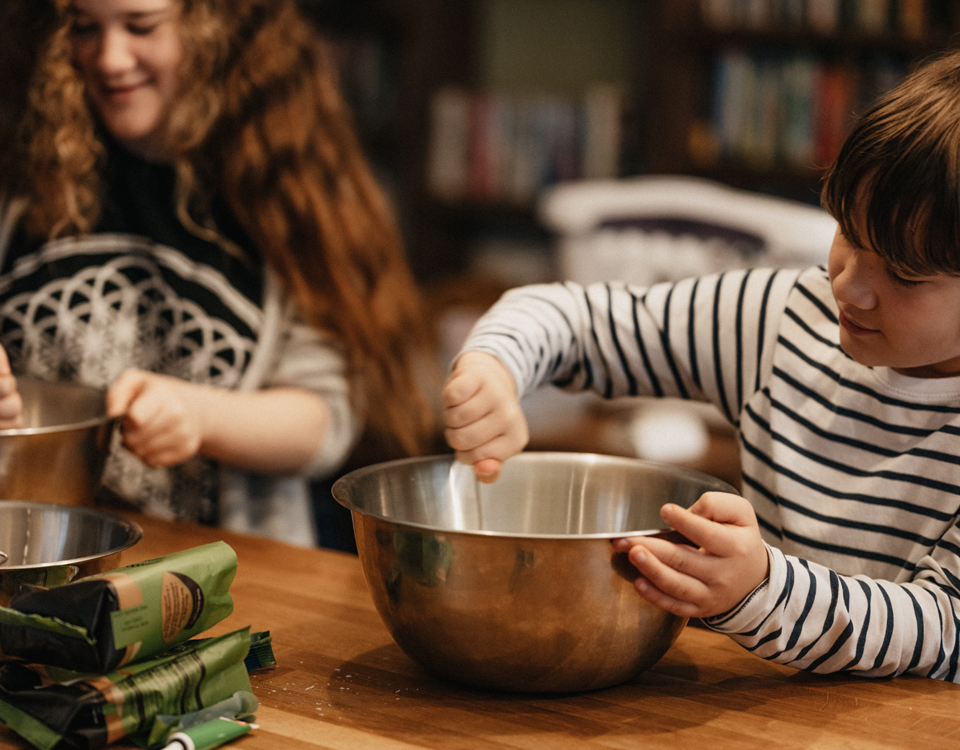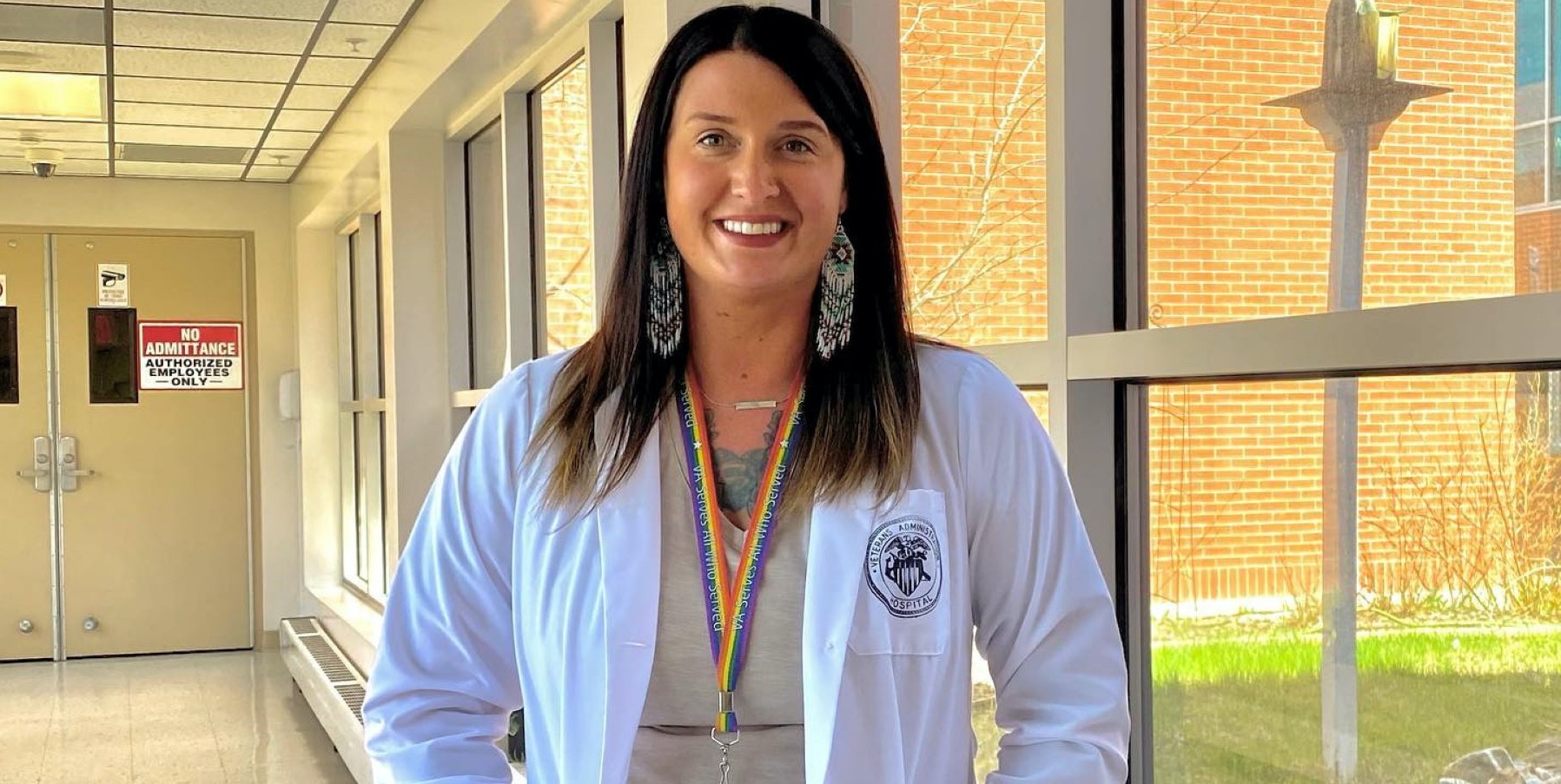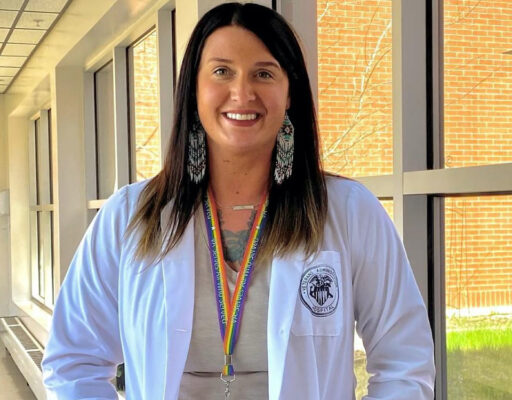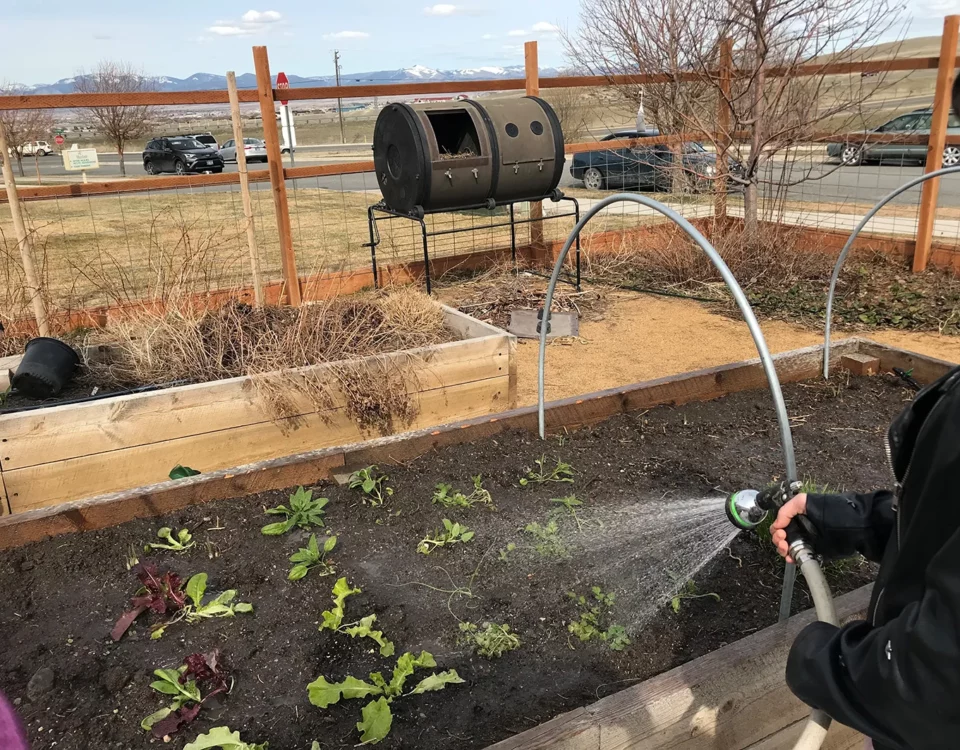
Employee Spotlight: Sarah Ryan
August 5, 2023
Today’s Skills, Tomorrow’s Future
August 6, 2023Creating Spiritual Spaces for All

While we can’t change the trauma that our patients have lived through, we can help to heal their future. And, at Shodair, that starts with a therapeutic care model and treatment program that empowers patients, and staff, to heal from adversity on all levels – physically, mentally, emotionally, behaviorally, and spiritually. Though the team at Shodair has always remained dedicated to fostering whole-person care in an atmosphere that promotes inclusivity and safety for all genders, races, and religions, we’re excited to be making strides in this effort with the inclusion of an intentionally designed spiritual space and smudging room in our new building. Here to tell us a little bit more about these spaces is Dr. Tammie Ellington, a Primary Therapist at Shodair and an integral part of both our building process and care team.
My name is Tammie Ellington. I am a psychologist and a member of the Chinook Indian Nation. I work as a Primary Therapist at Shodair on the acute psychiatric inpatient unit. I have been at Shodair for a year and have seen well over 300 patients in that time – ranging from ages 5-17 and coming from a range of socioeconomic statuses and a large variety of cultural and religious backgrounds. My doctoral program was in clinical psychology, where I specialized in Native American psychology and multicultural psychology. I have dedicated my entire career to multicultural competence, access, and diversity, with all of my research and publications focusing on Native American youth and mentorship. Those are some of the many reasons I came to work at Shodair.
I am one of the few Native American staff members here at Shodair. Due to my cultural identity, role at Shodair, and background in education and research, I was invited to be a voice in the creation and implementation of these spaces. Regarding the smudging room, it was often daunting to be a Native person giving advice to non-Native people on how to be culturally appropriate and competent in a space dedicated to our Native youth. Through past experiences, I have found advocating for your Indigenous culture and religion can be met with opposition and conflict. I was pleasantly surprised to see that this was not the experience I had working with the Shodair administration on the creation of these spaces. It was, instead, a collaborative and community-oriented approach, where my thoughts and opinions were met with grace and understanding, and all voices were heard and listened to.
Shodair currently consists of two subtypes of units – residential inpatient and acute inpatient. These populations include a diversity of youth from different religions and cultures, with Native American youth making up a large percentage of those supported by Shodair Children’s Hospital. Often on my own case load, 30-50% of patients have tribal affiliation. Our staff does an incredible job of educating youth on the access to spiritual and cultural resources they have while they are here. Patients are able to request time in these spaces through our amazing Allied Therapy team or through their individual therapists. Often, I am the person requested to smudge with these youth, even those that are not my direct care patients. I thoroughly enjoy this role as I get to spend increased meaningful time with all our Native youth at Shodair. It is a common occurrence to be walking down the hall and have a patient from a different unit shout, “Tammie will you smudge with me today!?”
In my opinion, this is the most significant change Shodair has made in the creation of our new hospital. These inclusive spiritual and cultural spaces have been needed for decades. It is enlightening to see that Shodair is an organization that prioritizes culture and religion in the treatment of mental health. I believe the result of this prioritization will improve our treatment outcomes and feelings of inclusivity to patients and their families. Research tells us how significant culture and religion are in the intersectionality and treatment for patients. Shodair is one of the few institutions in Montana taking this research seriously and implementing it effectively.
As our smudging and spiritual spaces are fairly new, there is not much data to determine the impact these spaces have had on patient care or outcomes. My own anecdotal evidence is that these spaces create a more inclusive and diverse environment for healing and treatment. Upon intake, when I inform parents and patients of these spaces, it is often met with excitement and a sense of relief that their child will be supported in more ways than just pharmaceuticals and therapy. At Shodair, patients are able to make individualized treatment plans for themselves surrounding how they can implement their spiritual/cultural practice in their everyday lives, as well as use them as a part of their safety plans. I have had parents and patients request to be smudged every morning, before and after therapy sessions, with certain medicines, and even alongside other family members. During these times, individuals have requested prayer, songs, Bible verses, moments of silence, and cultural education. The biggest question I often get, though, is – “How can I create cultural and religious goals for myself when I leave Shodair to keep up the religious/cultural practices I have been engaging in while here?”
This is my seventh year of seeing patients through a variety of modalities and treatment facilities, and Shodair Children’s Hospital has been my favorite place to work of all. While it is the community-oriented staff and their family-like values that keep me here, working with the youth is the icing on the cake! Collaborating with the staff and youth, together, creates this incredible synergetic treatment team that prioritizes the patient and their induvial needs. Shodair is not perfect by any means, but we are striving to be a leading resource and cutting-edge psychiatric hospital for children’s mental health and family wellbeing. The significant changes and inclusion of access and diversity that has come with the opening of our beautiful new building has shown the community how dedicated we are to making strides toward positive change. Others should continue to support Shodair because it enables us to grow and improve as both an organization and community. Supporting Shodair is supporting the wellbeing and mental health of Montana children.
Tonight, dozens of the most vulnerable Montana children will sleep safely in rooms designed just for them. And while you may never see inside of our new hospital, you will live in a world touched by the recovery of our patients. Your commitment today has the power to change the lives of Montana families tomorrow. Join our mission to heal, help, and inspire hope.




